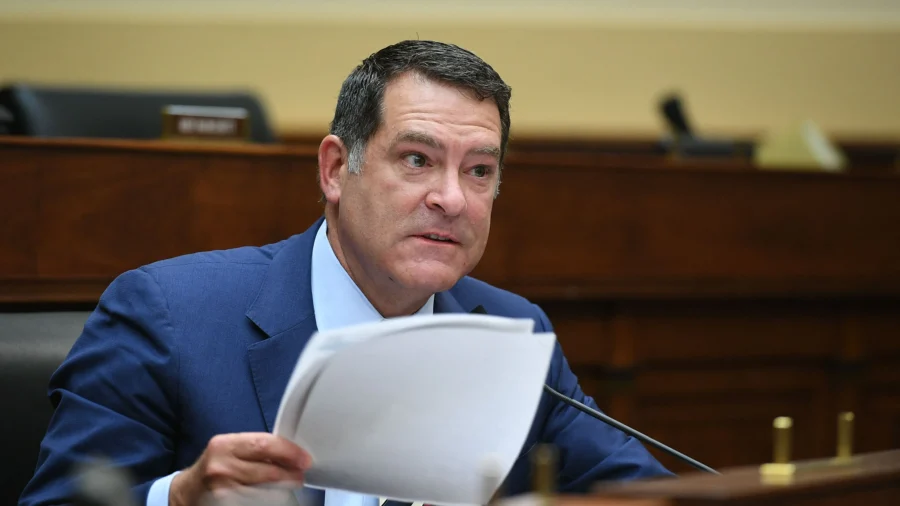Rep. Mark Green responded to a Tuesday report that alleges that congressional members’ portfolio gains have far outperformed the trades by average Americans on the stock exchange.
“Every year since 2020, US politicians beat the market. And many in Congress made unusually timed trades resulting in huge gains,” market analysis group Unusual Whales said on X announcing its report. Many in Congress also made losses. With the onset of the pandemic, society from 2020 has, to a greater extent than usual, been strongly shaped by government policies.
The stock and options news service made waves in 2021 when its Congressional Trading Report went viral. According to the company, six trading bills were banned in the week following the publication of that report.
In a press release responding to the report, Mr. Green, who ranked second on the list with 122 percent returns, explained that his portfolio is managed exclusively by his stock broker.
“In my first year in Congress, to go above and beyond even the hint of impropriety, I instructed my broker in writing to manage my family’s investments and to disregard any instructions from me should I try to provide input (which I have not),” Mr. Green said.
The representative included the letter with the authorization, dated June 18, 2020.
“Using insider information for personal benefit is a crime that should be strictly enforced,” he added. “All transactions and stocks I own can be viewed online.”
Eyes on Congress
Efforts to introduce a Congressional stock trading ban in an attempt to address ongoing concerns of insider trading and conflicts of interest failed in December 2022, a year after then-House Speaker Nancy Pelosi (D-Calif.) declared that lawmakers “should be able to participate” in the “free-market” economy. Unusual Whales said that in its view, “nothing was done to reign in this behavior,” alleging that “many unusual trades and conflicts” occurred in the past year.
Currently, members of Congress are required by law to disclose their financial trades—or those made by a spouse or a dependent child—as mandated by the Stop Trading on Congressional Knowledge (STOCK) Act of 2012, intended to encourage transparency by lawmakers about their personal investments. Fines from $200 face non-compliant members.
Politicians’ financial disclosure forms are made available to the public through the Office of the Clerk of the House of Representatives and the Office of the Secretary of the Senate.
“It’s been a month since George Santos was expelled from Congress. It’s been six months since Senator Mendenez was caught for a SECOND TIME in a corruption scandal accepting gold bars, and he’s still in Congress. And it’s been two weeks since Nancy Pelosi began trading Nvidia options, AGAIN!!!! after divesting from semiconductors last year for possible conflict of interests,” Unusual Whales added.
The report found that 32 congressional members have outperformed the chosen benchmark—SPY, an exchange-traded fund (ETF) that tracks the Standard & Poor’s 500 (S&P 500) index. It also noted that 50 congressional portfolios performed less than SPY, while 19 congressional members lost money on the stock market this year.
The average congressional stock returns in 2023 were 31 percent for Democrats, 18 percent for Republicans, while SPY reported growth of 25 percent.
“Congress on average beat the market in 2022 and did better in 2023,” Unusual Whales wrote, adding that it will not stop fighting for market and political transparency “until Congress is banned from trading.”
Given that the report only examined 101 officials, while Congress currently has 433 members in total, it remains uncertain to what extent these numbers are an accurate representation of the entire Congress.

